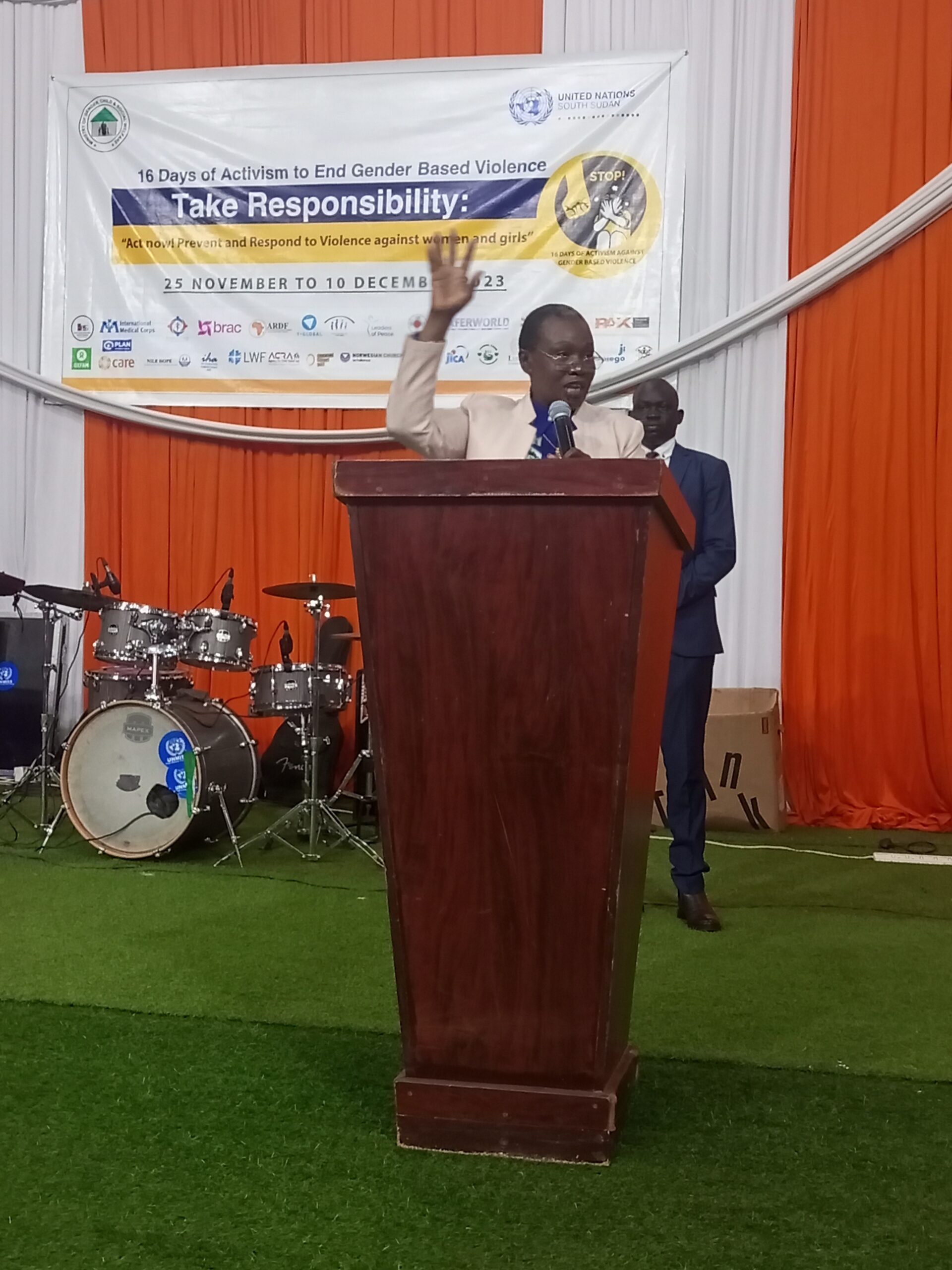
Western Equatoria State Government Launches Yambio County By-Law to Combat Gender-Based Violence and Child Marriage
In a significant step toward addressing pressing social issues, the government of Western Equatoria State officially launched the by-law for Yambio County aimed at combating Gender-Based Violence (GBV) and child marriage. The launch took place amidst local leaders, government officials, and community members who gathered to witness this milestone initiative.
Hon. James Abdulai Aruna, the state Minister of Health representing the Governor, emphasized the importance of the new by-law in guiding the youth of Yambio. “Through this by-law, our chiefs and local government will be able to provide clearer direction for our sons and daughters, encouraging them to invest in their futures rather than engage in harmful behaviors such as drug use,” he stated during the launch.
Supporting this initiative, RT Hon. Speaker Wakila Charles of the State Transition Legislative Assembly underscored the need for implementation and respect for the newly passed laws. “All bills can be passed, but our people must respect the law once Parliament approves it. We must work together to ensure these laws become practical and uphold our responsibilities as citizens,” he said. He noted that the ongoing challenges stem from a lack of planning for the future, encouraging collaboration and community engagement in the implementation of the by-law.
Hon. Grace Apollo, the state Minister of General Education and Instruction, addressed the educational implications of GBV and child marriage. “This law also touches on education; GBV has a direct impact on students’ ability to learn. We must begin educating our children about these bylaws to foster a better understanding of their rights and responsibilities,” she expressed.
Dr. Yengi Evans, Team Leader at Amref Africa’s field office in Yambio, shared insights from a situation analysis report conducted by health clusters. The report highlighted that South Sudan has one of the highest rates of GBV globally, with a significant lack of resources and capacity to tackle this issue effectively. “From 2021, there have been 1,087 reported cases of GBV, indicating the urgent need for intervention and support services,” he said.
Despite these advancements, challenges remain. Key obstacles include threats to GBV workers, limited funding, high community expectations, and a lack of shelters for survivors. Recommendations put forth emphasize the need for integrating GBV awareness into other programs, protecting frontline workers, and improving access to justice for survivors.
The program has garnered significant backing from AMREF Africa Health and financial support from the UNFPA South Sudan country office, reinforcing the commitment to combat child marriage across South Sudan. In May, UNFPA also supported initiatives aimed at ending child marriage in Eastern Equatoria State, demonstrating a cohesive effort in fighting this pervasive issue.




































